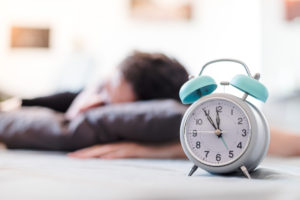 Daylight savings time is upon much of the country, and as the days start to get longer, the risk to your health goes up… at least temporarily.
Daylight savings time is upon much of the country, and as the days start to get longer, the risk to your health goes up… at least temporarily.
When daylight savings time pushes the clock ahead in the wee hours of Sunday morning, it also boosts the chance of car accidents, strokes, and heart attacks.
Advertisement
Multiple studies have shown that waking up an hour earlier is quite hard on the body. It can lead to poor decision making, slow reaction times, and provide a real shock to the system. This is especially true if you’re already dealing with a chronic health issue like heart disease.
Research indicates that in the first few days following the time change:
- Fatal car accidents increase by 6%.
- Stroke risk goes up by 8%.
- Heart attack risk goes up nearly 7% (and nearly 24% on the first day of the switch).
- Increased hospital admittance for atrial fibrillation among women.
Sleep is also affected in a big way. There is evidence to suggest that it takes about a week for sleep to regulate following the transition. The disruption to circadian rhythm—the sleep/wake cycle—is likely responsible for the corresponding cardiovascular risks.
So, if you’ve got high blood pressure, have heart disease, or are at risk for a heart attack or stroke, you’ll want to approach this week with caution.
A few things you can do include:
- Get outdoors for a walk early when you wake up on Sunday. Adjusting to the natural light in the morning may help regulate circadian rhythm faster. If possible, continue the practice throughout the week. Regular exercise can reduce CVD risk.
- Sleep for at least seven hours each night leading up to, and following, the transition to daylight savings time.
- Take it easy that week. Don’t overexert yourself. Call in sick or arrive late for work, if possible.
- Reschedule appointments.
- Eat a healthy diet all year long to reduce the risk of heart disease and stroke.
- Set a regular sleep schedule and practice good sleep hygiene.
